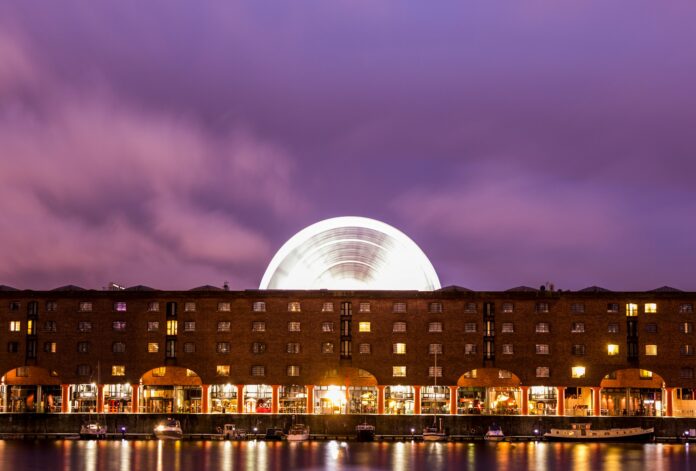It’s a tale as old as time itself. You see a property online, you fall in love with it, you speak to the landlord, agree on a rental amount and sign the contract. Happily Ever After ensues. If only it were that simple. In fact, there’s work to be done at every turn; from researching the right neighbourhood to hiring the right agent, paying the security deposit and finding a van big enough for moving day.
To make things go as smoothly as possible, it’s vital to be prepared, primed and ready to pose the right questions. With that in mind, and with the help of Langford Russel, estate agents in Bromley, here are 5 IDEAL questions to ask before you rent a house in 2020.
FIND OUT IF YOUR LANDLORD ACCEPTS A ZERO DEPOSIT SCHEME
A zero deposit scheme basically allows you to pay only one week’s rent as a deposit to the company running that scheme after which you can rent a property. This works out better financially since you don’t have to pay 4 to 6 weeks rent as the initial deposit, which can be quite a punch to the bank balance when there are lots of other expenses associated with moving house.
While the zero deposit scheme is of course beneficial to tenants, you’ll need to find out if your landlord accepts such an option instead of a traditional deposit. Keep in mind that the deposit under the zero deposit scheme is non-refundable at the end of the tenancy. However, this scheme allows you to safeguard your rights as a tenant since all the disputes are settled by The Dispute Service (usually referred to as TDS).
PET PEEVES?
Some landlords are open to having pets in the property while others can be finicky about it. Find out from the off which side your landlord’s toast is buttered. Instead of falling in love with a property, negotiating the terms and conditions of a contract, settling on a monthly deposit amount and then having your landlord tell you about the ‘no pets’ rule, it’s better that you bring up this question right in the beginning.
If your landlord is not okay with pets in the house, your estate agent can easily help you look for another place with that essential clause respected. Fortunately for animal lovers everywhere, recently announced government plans suggest that soon renters will be given rights to keep pets in all rental properties.
WHAT IS THE TOTAL COST?
When it comes to renting, there’s a danger in assuming that the cost of the initial deposit and the monthly rental is the total you’ll be paying. Unfortunately, the cost of renting is much higher than this, and you should budget accordingly.
You need to take in the fee of the real estate agent, the cost of the utility bills – this includes electricity bills, wifi bills, water bills, your TV licence, as well as council tax and maintenance fees which may not fall under the jurisdiction of the landlord. Then, there’s the cost of hiring a moving company to transfer all your stuff from your former home to the new property on moving day. Also, let’s not forget that some landlords might even charge a contract renewal fee at the end of the lease, while some may also charge an early exit fee. So, before you make the big move, make sure you factor in all these additional costs.
IS THIS THING ON?
Cursory inspections, with an estate agent breathing down your neck and the pressure to get back to work looming, are the normal way of doing things when checking out rental properties. But if you’re to take things to the next stage, and the property you’re checking out has potential, then it’s vital you check everything is in working order. In doing so, you can get those requests in to fix and update things while you still hold the cards.
Is there enough water pressure? Is the air conditioning working? Are there any broken light fixtures? Are there any leaky faucets? Are all the appliances working properly – this includes the microwave, refrigerator, television, toaster, mixer etc. Is there any mould on the walls? Are there any stains on the couch or carpets? Do the walls have any stains or peeling paint? Is the property clean?
If you find any faults or damages, make a list of the problems and ask the landlord to fix them before you move in. If you move in without making a note of these current damages, the chances are that the landlord might cut the cost of repair from your initial deposit.
CAN I SCRUTINISE THE TENANCY AGREEMENT IN A LITTLE MORE DETAIL?
Finally, it’s imperative that you do your due diligence and thoroughly scrutinise the rental contract prior to moving in, to check everything is in order and above board. Your estate agent will be able to help with that.
Ask if the name of the person renting the house to you the same as the name of the owner in the contract? What date does the tenancy begin? Are the details of the monthly rent, the date which rent is to be paid and any proposed rental increase all mentioned in the agreement? What appliances come with the property? Is there a detailed inventory of the property which has been verified by both you and the landlord? Does the agreement have an address of the landlord where notices regarding repair can be sent?
If there is anything in the contract that you don’t agree with, then ask your landlord to change those terms and conditions before signing. If the landlord does not agree, it is better that you find a new property instead of signing a legally binding document.
Once you’re all settled, it’s time to give your new pad some charisma. Check out our 5 IDEAL ways to bring some personality to your rental home for inspiration!






